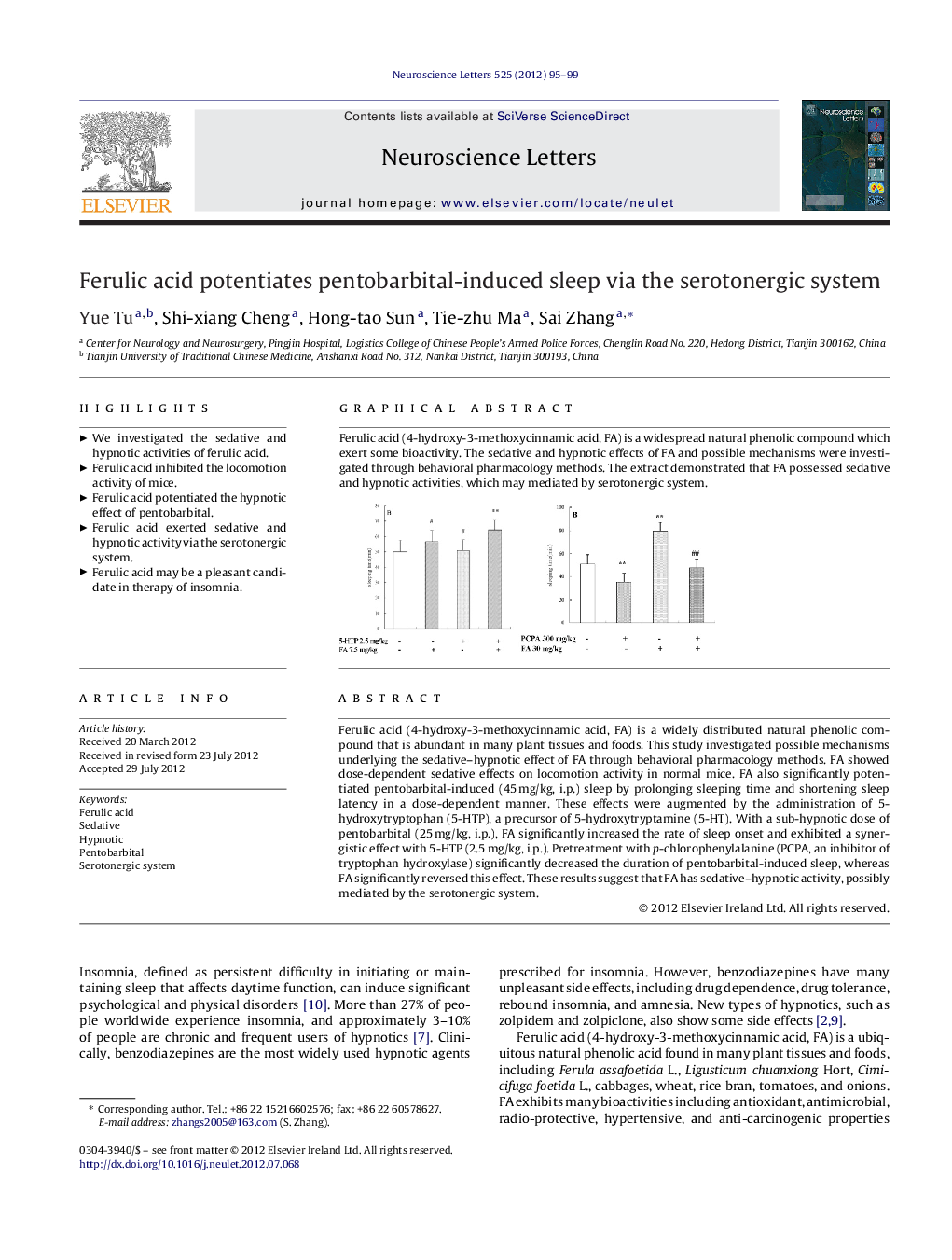| Article ID | Journal | Published Year | Pages | File Type |
|---|---|---|---|---|
| 4344386 | Neuroscience Letters | 2012 | 5 Pages |
Ferulic acid (4-hydroxy-3-methoxycinnamic acid, FA) is a widely distributed natural phenolic compound that is abundant in many plant tissues and foods. This study investigated possible mechanisms underlying the sedative–hypnotic effect of FA through behavioral pharmacology methods. FA showed dose-dependent sedative effects on locomotion activity in normal mice. FA also significantly potentiated pentobarbital-induced (45 mg/kg, i.p.) sleep by prolonging sleeping time and shortening sleep latency in a dose-dependent manner. These effects were augmented by the administration of 5-hydroxytryptophan (5-HTP), a precursor of 5-hydroxytryptamine (5-HT). With a sub-hypnotic dose of pentobarbital (25 mg/kg, i.p.), FA significantly increased the rate of sleep onset and exhibited a synergistic effect with 5-HTP (2.5 mg/kg, i.p.). Pretreatment with p-chlorophenylalanine (PCPA, an inhibitor of tryptophan hydroxylase) significantly decreased the duration of pentobarbital-induced sleep, whereas FA significantly reversed this effect. These results suggest that FA has sedative–hypnotic activity, possibly mediated by the serotonergic system.
Graphical abstractFerulic acid (4-hydroxy-3-methoxycinnamic acid, FA) is a widespread natural phenolic compound which exert some bioactivity. The sedative and hypnotic effects of FA and possible mechanisms were investigated through behavioral pharmacology methods. The extract demonstrated that FA possessed sedative and hypnotic activities, which may mediated by serotonergic system.Figure optionsDownload full-size imageDownload high-quality image (200 K)Download as PowerPoint slideHighlights► We investigated the sedative and hypnotic activities of ferulic acid. ► Ferulic acid inhibited the locomotion activity of mice. ► Ferulic acid potentiated the hypnotic effect of pentobarbital. ► Ferulic acid exerted sedative and hypnotic activity via the serotonergic system. ► Ferulic acid may be a pleasant candidate in therapy of insomnia.
